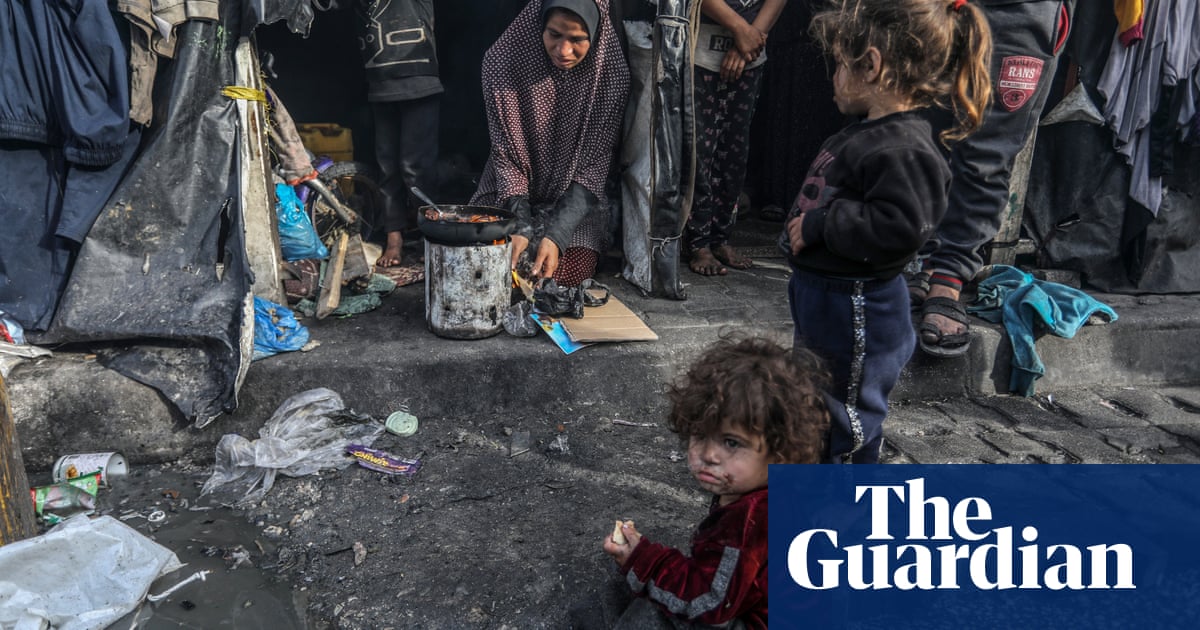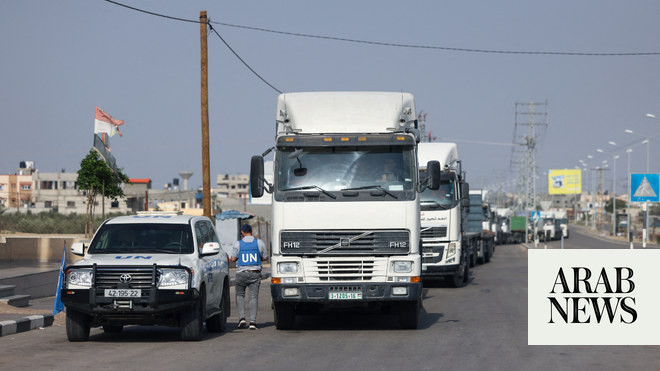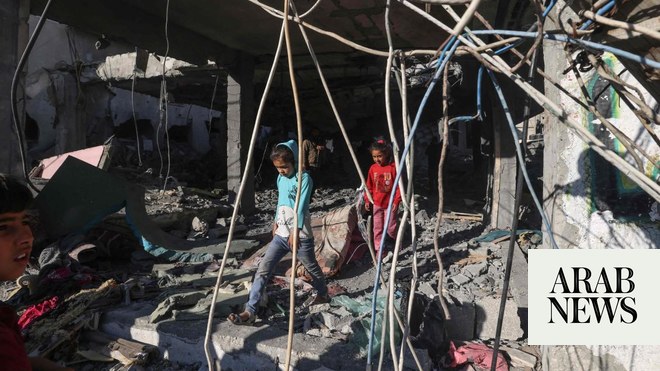
The World Food Programme (WFP) is to cut food aid next year to about 190,000 poor Palestinians in Gaza and the occupied West Bank due to a shortage of funds, the WFP’s senior official for the Palestinian Territories said on Wednesday.
The moves follows the slashing of US aid funding to humanitarian agencies working in the territories by the Donald Trump administration.
“WFP has been forced, unfortunately, to make drastic cuts to the number of people that we support across Palestine, both in Gaza and the West Bank,” WFP country director Stephen Kearney told Reuters in Jerusalem.
From Jan. 1, the United Nations agency will suspend food assistance to 27,000 people in the West Bank. In addition, food aid to 165,000 people in the Israeli-occupied territory and in the Gaza Strip would be reduced by 20 percent from $10 to $8 per person each month.
The US cuts affected 40 percent of total WFP funding, Kearney said.
“The major donor that we have had in the past years has been the US. They have cut funding, not just to UNRWA, who work with the refugees in Gaza, but also to the rest of the humanitarian community, including WFP,” he said.
Kearney said Gaza’s underlying problems would remain as long as Israel maintained its blockade and Palestinian factional infighting continued, preventing a political solution.
A spokesman for the Palestinian Authority, which exercises limited self-rule in the West Bank, declined comment.
In Gaza, Fawzi Barhoum, spokesman for the ruling Hamas group, urged the United Nations to “continue to provide the needs of the Palestinian people until they regain their freedom.”
Most of the help provided by WFP is through electronic cards, which people use to buy food at a network of 185 shops.
Palestinians and humanitarian workers fear the cuts will cause a downward spiral, as people buy less from businesses, and they in turn purchase less from suppliers.
In the Gaza town of Deir al-Balah, shopkeeper Mohammad Al-Dirawi said he had gained about 400 new customers since he joined the program and employed three new workers.
“We depend 90 percent on the work with the WFP,” he said.
“God forbid, if it stops, we may not be able to continue in the supermarket.”
Aref Abdel-Jawwad, owner of a dairy in Deir Al-Balah, said he sells 50 to 70 percent of his products to WFP-approved shops. He fears he will have to cut the hours of his employees, each earning around $300 per month.
Mustafa Kassiha, a dairy farmer in Rafah, said Abdel-Jawwad’s dairy buys all his milk.
“This is our only income. There is no alternative to it,” he said.











